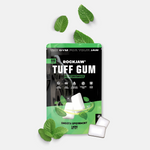Sunken cheeks, also known as hollow cheeks or gaunt cheeks, occur when there is a loss of fat and muscle in the cheek area. This can happen due to a variety of reasons, including aging, weight loss, genetics, and certain medical conditions. While some people may find sunken cheeks to be desirable, others may feel self-conscious about their appearance. In this blog, we will explore the causes of sunken cheeks, their potential impact on one's appearance and health, and what can be done to address this issue.
Causes of Sunken Cheeks:
Aging: As we age, our body undergoes a natural process of fat and muscle loss, and this can lead to sunken cheeks. The fat pads that support our cheeks begin to shrink, and the skin loses elasticity, resulting in a sunken appearance.
Weight loss: Sudden or excessive weight loss can lead to sunken cheeks. This is because a significant reduction in body fat can also affect the fat pads in the cheek area.
Genetics: Some people are more prone to having sunken cheeks due to their genetic makeup. This means that even if they maintain a healthy weight and take good care of their skin, their cheeks may still appear hollow.
Medical conditions: Certain medical conditions, such as HIV, cancer, and eating disorders, can cause a loss of fat and muscle in the cheek area. In some cases, sunken cheeks may also be a side effect of medications used to treat these conditions.
Impact of Sunken Cheeks:
Appearance: Some people find sunken cheeks to be desirable, as it can give the face a more angular and chiseled appearance. However, others may feel self-conscious about their sunken cheeks, as it can make them look older or tired.
Health: In some cases, sunken cheeks can be a sign of underlying health issues. For example, a loss of fat and muscle in the cheek area can be a symptom of malnutrition or dehydration. Additionally, sunken cheeks can affect one's ability to chew and speak properly, which can impact overall health and well-being.
Treatment Options:
Dermal fillers: One option for addressing sunken cheeks is to use dermal fillers. These are injections of a substance, such as hyaluronic acid or collagen, that can help restore volume to the cheeks. The results of dermal fillers typically last for several months to a year.
Fat grafting: Another option is to undergo fat grafting, which involves taking fat from one area of the body and injecting it into the cheeks. This can provide a longer-lasting solution compared to dermal fillers, but it is also a more invasive procedure.
Surgery: In some cases, surgical intervention may be necessary to address sunken cheeks. This can involve a cheek lift or a facelift, which can help restore volume and improve the overall appearance of the face.
In conclusion, sunken cheeks can be caused by a variety of factors, including aging, weight loss, genetics, and medical conditions. While some people may find sunken cheeks to be desirable, others may feel self-conscious about their appearance. It is important to consider the potential impact of sunken cheeks on both appearance and health, and to explore treatment options that can help address this issue.











